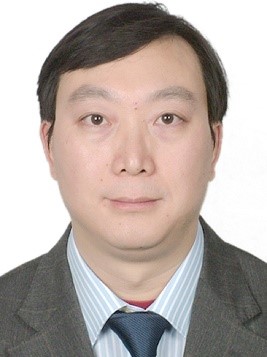

Prof. Defu Zhang
Xiamen University, China
Experience: He received his bachelor degree in computational mathematics in 1996, and master degree in computational mathematics in 1999, both from Xiangtan University, and his Ph.D. degree in computer software and its theory from the school of computer science in Huazhong University of Science & Technology. He was a senior researcher of Shanghai Jinxin financial engineering academe from Jun. 2002 to Apr. 2003. Now he works in the department of Computer Science at Xiamen University as a professor. He worked as a PostDoc at the Longtop for financial data mining group from 2006 to 2008. From June 6, 2008 to September 6, 2008 and from July 6, 2009 to September 6, 2009, he worked as a visiting scholar of Hong Kong City University. From December 28, 2009 to December 28, 2010, he works at University of Wisconsin-Madison as a visiting scholar. From July 13, 2011 to September 12, 2011, he worked as a visiting associate professor of Hong Kong City University. From Sept. 7, 2012 to September 20, 2012, he worked as a research fellow of Hong Kong City University. From July 12, 2013 to August 31, 2013, he worked as a research fellow of Hong Kong City University. From August 31, 2013 to October 31, 2013, he worked as a visiting fellow of Macau University.
Title: Identification of rice plant diseases using deep learning
Abstract: Rice is one of the most important crops in the world, and most people consume rice as a staple food, especially in Asian countries. Various rice plant diseases have a negative effect on crop yields. If proper detection is not taken, they can spread and lead to a significant decline in agricultural productions. In severe cases, they may even cause no grain harvest entirely, thus having a devastating impact on food security. This talk will introduce our research on deep learning models for rice plant diseases. The computational results are reported.

Prof. Zhikui Chen
Dalian University of Technology, China
Experience: Dr. Chen Zhikui, professor and doctoral supervisor of Dalian University of technology since November 2007, director of big data Research Institute of Dalian University of technology. Research direction: big data and artificial intelligence. 1998-2007 engaged in scientific research on network and data computing in Hong Kong Baptist University, French Institute of automation, University of Stuttgart, Germany. National projects in recent five years:
National key R & D project, Key technology research for cross domain case filing and collaboration among professional courts (2018YFC083130020, 18.7.1-2021.6.30, with a total funding of 11.15 million yuan);
National key R & D program, Source apportionment and pollution characteristics of heavy metals in farmland and agricultural products (2016YFD08030202016.1.1-2020.12.31);
Key project of National Natural Science Foundation of China (NSFC) (technical director), research on management analysis and mining of multi-source heterogeneous big data for "three old" transformation (u13012532014.1-2017.12);
Two general projects of NSFC, research on adaptive depth computing model for land resource feature learning (61672123), Research on few-shots cross-modal learning model for interpretation of land utilization status data (62076047), 2021 / 01-2024 / 12.
Academic achievements and contributions in recent five years:
A series of big data computing theories and algorithms as well as artificial intelligence technology have been created, a big data algorithm library platform has been developed, and an artificial intelligence computing platform has been constructed, which has been applied in engineering practice. Published more than 100 academic papers and more than 50 SCI retrieved journals. 20 invention patents have been applied and 13 have been authorized. Four software copyrights were issued and three books were published. One special award, first award and second award of science and technology progress of Geographic Information Association in 2020,2018,2016; One third award of Huaxia Construction Science and technology in 2021.
Title: Research on ocean multi-modal data fusion
Abstract: With the widespread use of computing devices and multimedia technologies, multimodal data is becoming more and more common in daily life. For example, in social life, people use different modal data, such as images, texts, videos, to express their moods when posting updates on Weibo, WeChat and other social software. Therefore, how to analyze and process multimodal data and capture the complementary knowledge hidden in multimodal data becomes an urgent problem to be solved. For example, in the ocean data analysis task, in order to process the multi-domain, multi-source, optical-acoustic-electric-magnetic and other multi-modal data from the sky and the coast, the analysis algorithm based on the marine multi-modal data should be designed to perform effective analysis of marine multimodal data. For multimodal analysis in real scenarios, present works first collect multi-modal data with the help of multi-source heterogeneous sensor equipment, which provides the basis for multi-modal data analysis. Then, these heterogeneous data are mapped to a common space through algorithms to capture the common information of multimodal data. Finally, fusion techniques are used to fuse these features to obtain complementary knowledge of multimodal data. However, the whole multimodal analysis process still has the problems of data imbalance, data mismatch and multiple modalities, which requires further research. Aiming at the problem of data imbalance in data acquisition based on multi-source equipment, a multi-modal low-rank tensor data reconstruction algorithm for imbalanced data is designed to complete imbalanced multi-modal data; For the problem of multi-modal data scales non-uniformity, an anchored multi-modal alignment method for multi-scale data is designed to achieve mismatched data alignment; for the feature fusion problem of multi-modal data, deep semantic feature fusion method for multi-modal data is designed to achieve multi-modality data fusion.